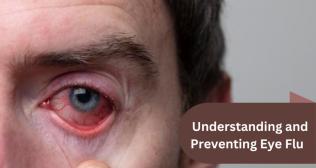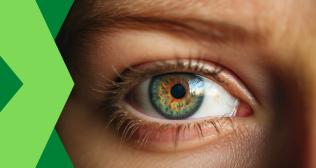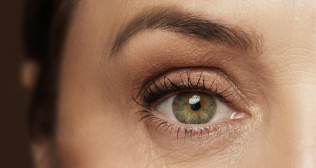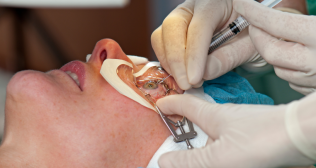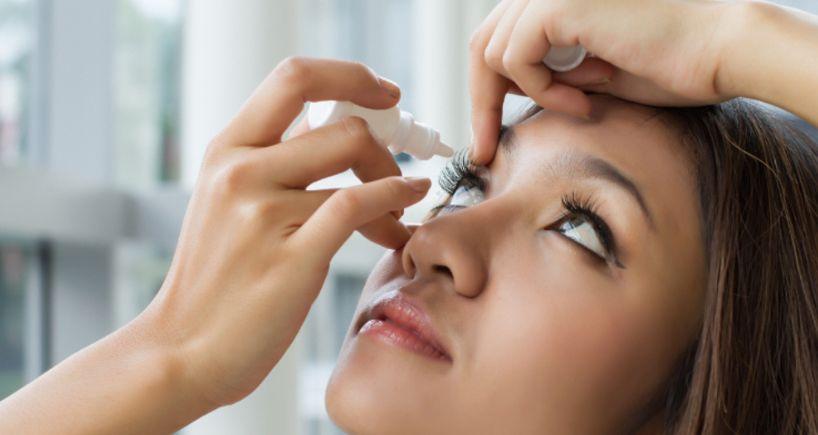
Eye Drops: Benefits and Potential Risks
Eye drops are the liquid form of medications that are used to manage various eye conditions. It is important to know when to use eye drops to avoid complications.
Eye drops
Eye drops are liquid solutions used only for topical applications. Based on the eye specialist’s advice, a drop or two is applied on your eye surface. The eye drops contain ingredients and medications in different combinations for different eye conditions.
Types of eye drops
The eye drops are usually used based on symptoms and concerns. Some eye drops are available as over-the-counter drops while others are prescribed by the eye specialists.
Benefits of eye drops
Each ingredient present in eye drops has some properties to manage eye concerns. It includes the following benefits:
- Lubricate eye – Demulcents are usually found in artificial tears. It allows fluid movements inside the eyes and provides moisture to the eyes.
- Moisturize tissues around eyes – Emollients soften the skin around the eyes and keep them moisturized. It is mainly used for managing dry or cracked soft tissues around the eyes.
- Irrigate the eye surface – The formulated eye drops are used to irrigate the eyes' surface. It flushes the debris and irritants away from the eye surface.
- Regulate eye fluid – Some ingredients in eye drops regulate the fluids in the eyes in adequate quantities.
- Reduce eye discharge – Astringents present in eye drops reduces the mucous content and makes it less sticky. It reduces irritation and keeps the eye clean.
- Reduce eye inflammation – Vasoconstrictors reduce the inflammation and redness in the eyes by decreasing the blood flow to the capillaries.
Purpose of prescription eye drops
The various ingredients present in prescription eye drops and their uses include:
- Reduce eye pain – Anesthetics create numbness in the eyes and reduce the pain and discomfort. It helps in relieving eye soreness.
- Treat bacterial infections – Antibiotics are used to treat the bacterial eye infections.
- Reduce eye allergy – Antihistamines reduce allergic reactions in the eyes, such as irritation, itching, and discomfort.
- Reduce swelling – Corticosteroids are used to manage swelling around the eyes. The anti-inflammatory properties reduce the inflammation and redness of the eye.
- Enlarge pupils – Some eye drops are used during an eye examination to dilate the pupils and examine the structures of the eye.
- Reduce autoimmune activity – Some medications in eye drops limit autoimmune mechanisms. It protects the eyes against damage from our own immune system.
- Reduce eye pressure – For conditions like glaucoma, eye drops are used to manage eye pressure.
- Repair – Serum eye drops are used to repair and heal eye-related issues.
Advantages of eye drops
The advantages of eye drops depend on the type of ingredients and their properties. They are
- Highly effective – using the right type of eye drops helps in recovering from eye-related issues. Hence, it is important to consult an eye specialist before using an eye drop.
- Safe – The over-the-counter eye drops are available in the drug store and are safe to use. However, prescribed eye drops should be used as per the instructions provided by your doctor.
- Easy to apply – Eye drops are easy to apply to the eye surface.
Potential risks of eye drops
Some eye drops have the following potential risks associated with them:
- Worsen the condition – Though eye drops can relieve the symptoms, they may not help in managing the condition itself. It can even worsen certain eye conditions. For example, eye drops can reduce redness initially, but it can recur. So, it is better to use them based on the doctor’s advice.
- Wrong choice – using wrong eye drops can cause some serious issues in the eyes. For example, pain can occur due to dry eyes or glaucoma. The eye drop must be chosen based on the underlying condition. If chosen wrong, the condition may last longer than usual.
- Prone to infection – eyes are prone to damage from debris and foreign substances. If wrong eye drops are used, it leads to infection and serious complications.
- Noncompliance – Some manufacturers may not follow the rules and regulations provided by the medical council. Their intention is to seek profits. However, using such unauthorized eye drops may affect one’s eye health.
- Aggravate the eye conditions– using over-the-counter eye drops for eye conditions such as cataracts, retinal diseases, and diabetic retinopathy can aggravate them and cause serious issues.
- Harmful ingredients – some over-the-counter eye drops may contain ingredients such as silver sulfate (argentum) or methyl sulfonyl methane. These ingredients can cause permanent damage to sclera.
Medical attention
If you face any eye-related issues, consider consulting your eye specialist before using any eye drops. After examining your eye, the doctor may recommend specific products.
Consult your doctor if
- Eye drops are not effective or did not show any improvement in your condition
- There are side effects such as irritation, redness, or discomfort after use
Storage
Store the eye drops based on the instructions given in the manual or ask your eye specialist. It is better to avoid using the product with label or packaging issues.
Safety measures
There are a few safety measures to follow while using the eye drops:
- Wash your hands with a mild disinfectant and wipe your hands dry before using eye drops. This helps in reducing the spread of infection.
- Avoid using the eye drops prescribed for your friends or family.
- Before using over-the-counter drops, check the list of ingredients if they are safe to use. In addition, check if the drug has been approved in your country for use.
- To avoid contamination, always ensure that the bottle is closed after use.
Conclusion
It is difficult to focus or work when there is discomfort in your eyes. However, when the eyedrops are used properly, it makes you feel better. It is important to be extra careful when you use over-the-counter drops, especially the ones that are available online.
Popular Searches :
Hospitals: Cancer Hospital in Delhi | Best Heart Hospital in Delhi | Hospital in Amritsar | Hospital in Ludhiana | Hospitals in Mohali | Hospital in Faridabad | Hospitals in Gurgaon | Best Hospital in Jaipur | Hospitals in Greater Noida | Hospitals in Noida | Best Kidney Hospital in Kolkata | Best Hospital in Kolkata | Hospitals in Rajajinagar Bangalore | Hospitals in Richmond Road Bangalore | Hospitals in Nagarbhavi Bangalore | Hospital in Kalyan West | Hospitals in Mulund | Best Hospital in India | | Cardiology Hospital in India | Best Cancer Hospital in India | Best Cardiology Hospital in India | Best Oncology Hospital In India | Best Cancer Hospital in Delhi | Best Liver Transplant Hospital in India
Doctors: Dr. Rana Patir | Dr. Rajesh Benny | Dr. Rahul Bhargava | Dr. Jayant Arora | Dr. Anoop Misra | Dr. Manu Tiwari | Dr. Praveer Agarwal | Dr. Arup Ratan Dutta | Dr. Meenakshi Ahuja | Dr. Anoop Jhurani | Dr. Shivaji Basu | Dr. Subhash Jangid | Dr. Atul Mathur | Dr. Gurinder Bedi | Dr. Monika Wadhawan | Dr. Debasis Datta | Dr. Shrinivas Narayan | Dr. Praveen Gupta | Dr. Nitin Jha | Dr. Raghu Nagaraj | Dr. Ashok Seth | Dr. Sandeep Vaishya | Dr. Atul Mishra | Dr. Z S Meharwal | Dr. Ajay Bhalla | Dr. Atul Kumar Mittal | Dr. Arvind Kumar Khurana | Dr. Narayan Hulse | Dr. Samir Parikh | Dr. Amit Javed | Dr. Narayan Banerjee | Dr. Bimlesh Dhar Pandey | Dr. Arghya Chattopadhyay | Dr. G.R. Vijay Kumar | Dr Ashok Gupta | Dr. Gourdas Choudhuri | Dr. Sushrut Singh | Dr. N.C. Krishnamani | Dr. Atampreet Singh | Dr. Vivek Jawali | Dr. Sanjeev Gulati | Dr. Amite Pankaj Aggarwal | Dr. Ajay Kaul | Dr. Sunita Varma | Dr. Manoj Kumar Goel | Dr. R Muralidharan | Dr. Sushmita Roychowdhury | Dr. T.S. MAHANT | Dr. UDIPTA RAY | Dr. Aparna Jaswal | Dr. Ravul Jindal | Dr. Savyasachi Saxena | Dr. Ajay Kumar Kriplani | Dr. Nitesh Rohatgi | Dr. Anupam Jindal |
Specialties: Heart Lung Transplant | Orthopedic | Cardiology Interventional | Obstetrics & Gynaecology | Onco Radiation | Neurosurgery | Interventional Cardiology | Gastroenterologist in Jaipur | Neuro Physician | Gynecologist in Kolkata | Best Neurologist in India | Liver Transfer









